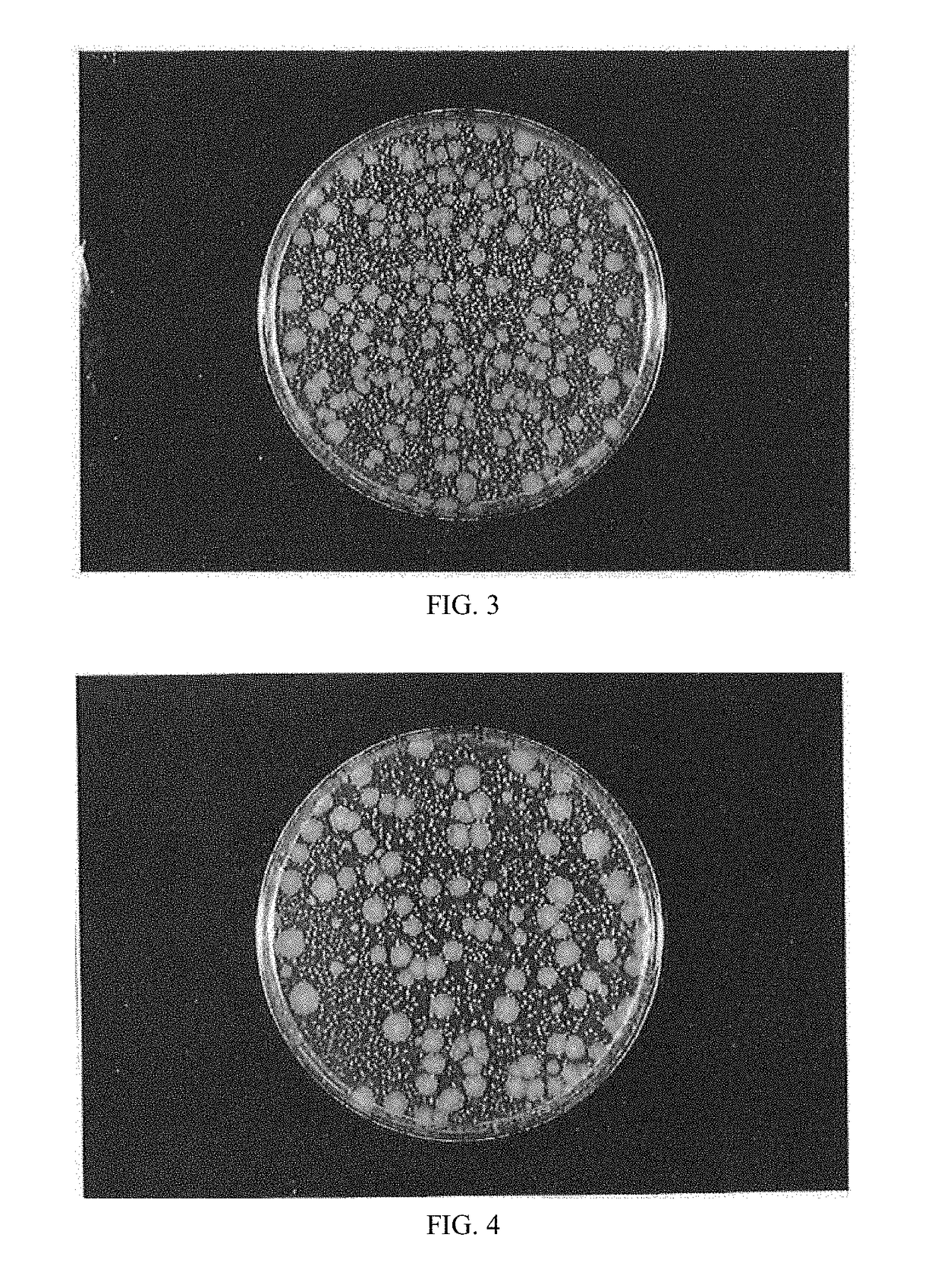Antibacterial product and method of manufacturing the same
- Summary
- Abstract
- Description
- Claims
- Application Information
AI Technical Summary
Benefits of technology
Problems solved by technology
Method used
Image
Examples
example 1
[0161]As shown in FIG. 1, a cylindrical food container (height: 20 cm and diameter: 5 cm), which included an inner wall (made of stainless steel) having a screw threaded upper portion, an outer bottle (made of stainless steel), a vacuum part between the inner wall and the outer bottle, and an externally screw threaded lip contact part (made of an aluminum alloy), was manufactured. 1.5 parts by weight of a silver nitrate powder was added and dissolved into 100 parts by weight of water to prepare a silver nitrate aqueous solution. The silver nitrate aqueous solution was applied on the inner wall and the lip contact part of the food container. The applied portion was sintered in air at 440° C. for 120 min, thus forming a first silver oxide-sintered surface layer on the inner wall and a second silver oxide-sintered surface layer on the lip contact part, after which the temperature was reduced to 20° C., followed by washing with water and then drying at room temperature, thereby manufact...
example 2
[0170]1000 mL of water was added with 0.5 kg of talc particles (E553b: EU Authorization Number) and 10 g of a silver nitrate powder and mixed therewith, and the mixture was dried, after which the dried powder was sintered at 440° C. for 120 min under an oxygen atmosphere (under air), thus preparing sintered silver oxide in particle form, having talc particles in the core thereof. 100 parts by weight of a plastic material (polypropylene) and 40 parts by weight of the sintered silver oxide in particle form were mixed and heated to make pellets. The pellets were used to mold a kitchen board (width: 34 cm, length: 23 cm, height: 0.3 cm). The entire upper and lower surfaces of the kitchen board were subjected to sandblasting, thus exposing the sintered silver oxide in particle form to the upper and lower surfaces of the kitchen board. The manufactured kitchen board was used as Specimen 2.
[0171]Antibacterial Test of Kitchen Board
[0172]The following antibacterial test was performed by Japa...
example 3
[0180]As shown in FIG. 1, a cylindrical food container (height: 20 cm and diameter: 5 cm), which included an inner wall (made of stainless steel) having a screw threaded upper portion, an outer bottle (made of stainless steel), a vacuum part between the inner wall and the outer bottle, and an externally screw threaded lip contact part (made of an aluminum alloy), was manufactured. 1.5 parts by weight of a silver nitrate powder was added and dissolved into 100 parts by weight of water to prepare a silver nitrate aqueous solution. The silver nitrate aqueous solution was applied on the inner wall and the lip contact part of the food container. The applied portion was sintered at 440° C. for 120 min under a nitrogen atmosphere (99 to 100 vol % of nitrogen), thus forming a first surface layer containing silver sintered under a nitrogen atmosphere on the inner wall and a second surface layer containing silver sintered under a nitrogen atmosphere on the lip contact part, after which the te...
PUM
| Property | Measurement | Unit |
|---|---|---|
| Temperature | aaaaa | aaaaa |
| Thickness | aaaaa | aaaaa |
| Thickness | aaaaa | aaaaa |
Abstract
Description
Claims
Application Information
 Login to View More
Login to View More - R&D Engineer
- R&D Manager
- IP Professional
- Industry Leading Data Capabilities
- Powerful AI technology
- Patent DNA Extraction
Browse by: Latest US Patents, China's latest patents, Technical Efficacy Thesaurus, Application Domain, Technology Topic, Popular Technical Reports.
© 2024 PatSnap. All rights reserved.Legal|Privacy policy|Modern Slavery Act Transparency Statement|Sitemap|About US| Contact US: help@patsnap.com










